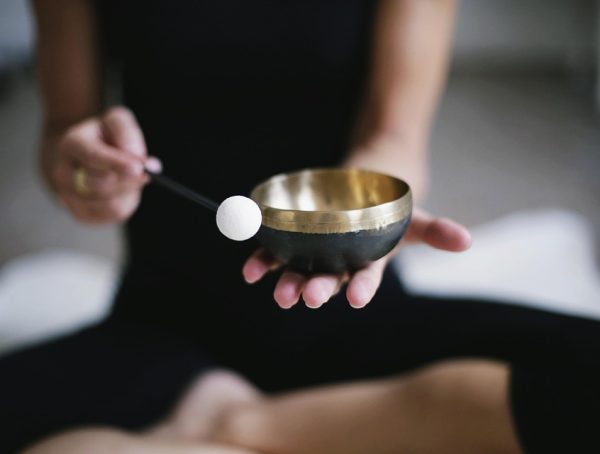Exploring Mindfulness Meditation: A Natural Remedy for Anxiety
In today’s fast-paced world, anxiety has emerged as one of the most common mental health concerns. As the pressures of work, relationships, and daily responsibilities accumulate, many find themselves trapped in a cycle of stress and worry. Traditional treatment options—such as therapy and medication—can be effective; however, they may not be for everyone. Fortunately, there exists a remedy that is both natural and accessible: mindfulness meditation.
What is Mindfulness Meditation?
Mindfulness meditation is a practice rooted in ancient Buddhist traditions. It involves focusing your attention on the current moment while observing your thoughts and feelings without judgment. By cultivating awareness, you can create space between you and your thoughts, enabling you to respond rather than react to anxiety-provoking situations.
Research has shown that mindfulness meditation can significantly reduce stress and anxiety symptoms. A study published in the journal "JAMA Internal Medicine" found that mindfulness meditation programs led to moderate improvements in anxiety, depression, and pain among participants.
How Mindfulness Meditation Works
The mechanics of mindfulness meditation are straightforward but powerful. When you practice mindfulness, you train your brain to be present. This shift in focus can help you disengage from racing thoughts and negative spirals that often exacerbate anxiety. Through regular practice, you may start to notice that your worries hold less power over you, allowing for more peace and balance in your everyday life.
Benefits of Mindfulness Meditation for Anxiety
-
Reduction of Stress Hormones: Research suggests that mindfulness can lower levels of cortisol, the body’s primary stress hormone, which contributes to anxiety and chronic stress.
-
Improved Emotional Regulation: Mindfulness meditation can improve your ability to manage difficult emotions, leading to less reactivity to anxiety-provoking situations.
-
Increased Awareness: Mindfulness cultivates self-awareness, prompting you to recognize triggers and patterns in your thoughts and behavior, which can prevent anxiety from escalating.
-
Enhanced Focus and Clarity: By training your mind to concentrate on the present, you can improve your overall focus and cognitive functioning, which is beneficial when navigating anxiety-inducing circumstances.
- Better Sleep Quality: Mindfulness practices have been associated with enhanced sleep quality, further alleviating anxiety that might stem from sleep deprivation.
Getting Started with Mindfulness Meditation: Action Steps
If you’re ready to explore the world of mindfulness meditation as a natural remedy for anxiety, here are some actionable steps you can take to get started:
1. Set Aside Time
Choose a consistent time each day to practice mindfulness meditation. Start with just 5-10 minutes a day—aim to gradually increase this duration as you become more comfortable with the practice. Morning or evening hours often work best for many.
2. Create a Comfortable Space
Find a quiet and comfortable spot where you can sit or lie down without distractions. You may want to use cushions or a chair for added comfort. Ensure the lighting is conducive to relaxation.
3. Focus on Your Breath
Begin your session by taking a few deep breaths. Inhale slowly through your nose, hold for a moment, then exhale through your mouth. Allow your breath to flow naturally. Pay attention to the sensation of each breath—how it feels as it fills your lungs and the release as you exhale.
4. Observe Your Thoughts
As you meditate, thoughts will inevitably arise. When they do, acknowledge them without judgment and gently return your focus to your breath. It’s normal for the mind to wander; the key is to cultivate a patient and accepting attitude toward your thoughts.
5. Incorporate Mindfulness into Daily Life
Beyond formal meditation sessions, try to incorporate mindfulness into your everyday activities. Whether you’re eating, walking, or doing chores, pay attention to the sensations and experiences in that moment. For example, while eating, savor the flavors and textures of your food instead of rushing through your meal.
6. Use Guided Meditations
If you find it challenging to meditate on your own, consider using guided meditations through apps or online platforms. Many resources are available that target anxiety and stress management specifically.
7. Join a Community
Connecting with others who practice mindfulness can provide support and encouragement. Consider joining a meditation group or participating in workshops where you can learn and grow together.
8. Be Patient and Persistent
Mindfulness meditation is a skill that takes time to develop. Be patient with yourself as you navigate the highs and lows of your practice, and recognize that it’s a journey with ups and downs.
Conclusion
Incorporating mindfulness meditation into your life can be a powerful strategy for reducing anxiety. By honing your focus on the present moment, you can cultivate resilience and peace amid life’s challenges. With commitment and practice, you will likely experience growth in your ability to manage anxiety naturally.
Mindfulness meditation is not a panacea, but it serves as an effective tool in the toolbox of approaches you can take to combat anxiety. Remember that everyone’s journey is unique, so tailor your practice to fit your personal needs and preferences.
As you embark on this journey towards mindfulness, always keep an open heart and mind.
“Take a deep breath. It’s just a bad day, not a bad life.”
If you found this content valuable, be sure to follow Kevin on Instagram (@KSteineman) for more insights and uplifting content!
You might also like
More from Meditation
The Role of Mantras in Transcendental Meditation: A Deep Dive
The Role of Mantras in Transcendental Meditation: A Deep Dive Transcendental Meditation (TM) has garnered a significant following across the globe, …
The Science Behind Meditation: Improving Mental Health Naturally
The Science Behind Meditation: Improving Mental Health Naturally In today's fast-paced world, the pursuit of mental wellness has become paramount. Thousands …
Understanding the 7 Types of Meditation for Beginners
Understanding the 7 Types of Meditation for Beginners: A Path to Inner Peace Meditation has become a popular practice in recent …

































